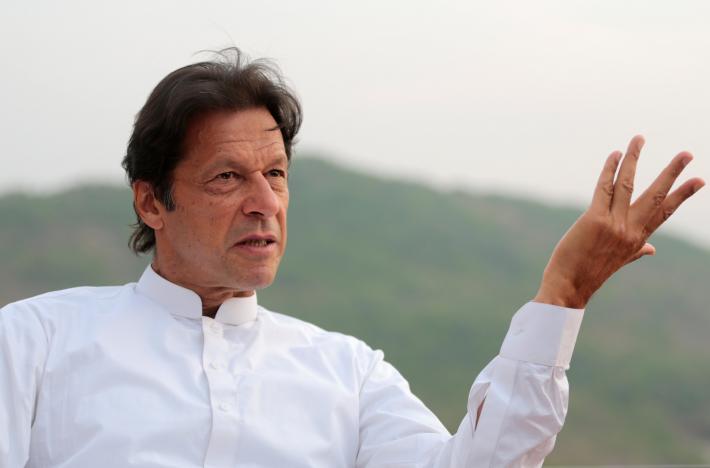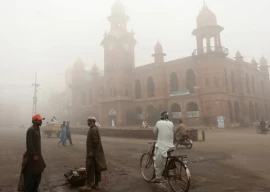
“The PTI will not budge on its prime demands – voting rights to overseas Pakistani, use of electronic voting machines [EVM] and biometric verification machines [BVM], appointment of returning officers (ROs) from armed forces and change in mechanism for appointment of caretaker set-up before next general election,” said senior PTI leader Dr Arif Alvi.
Alvi is one of the 34 members of electoral reforms panel that is struggling to refine the electoral laws.
'Jews' should've offered Fazl diesel permits instead: Imran
The two major political parties – the PML-N and the PPP – as well as the Election Commission of Pakistan (ECP) and the National Database and Registration Authority (NADRA) have been opposing granting voting rights to overseas Pakistanis – for different reasons.
The PPP and the PML-N have also rejected a change in current mechanism for appointment of a caretaker government and drawing the ROs from armed forces.
“First they [government] claimed it was not technically viable to devise a trusted mechanism for overseas Pakistanis for casting votes. Later, they claimed it’s financially not feasible as one machine will cost around $1500, and now they are claiming it will compromise national database,” Alvi said.
PTI to sue Nawaz for ‘taking funds’ from Bin Laden
He said the PTI worked with the government with good intention but the government is in a habit of retracting from its promises and assurances. Alvi said the PTI was of the opinion that without incorporating its 10-point package to the bill, holding free and fair polls would not be possible.
In the wake of Alvi’s remarks, it is more likely that the committee will not be able to generate greater consensus among all stakeholders on the reform within government’s own deadline for the purpose.
The committee’s head, Ishaq Dar, had earlier hoped that the panel would complete its task before the upcoming 2017-18 budget session. The 24th meeting of the panel will be held today [Tuesday] at the Parliament House to discuss report of a subcommittee headed by Law Minister Zahid Hamid on draft Elections Bill, 2017.
PTI cries foul over PPP's use of 'dirty politics'
Earlier, the subcommittee on electoral reforms had decided to furnish its report to the main reforms committee after it failed to develop consensus among political parties over the issue.
In December last year, the government had come up with a 149-page draft bill on the electoral reforms – The Election Bill, 2017 – that primarily focuses on fine-tuning the existing election laws in the country.
The parliamentary committee on electoral reforms – formed by the government after the PTI’s 2014 marathon sit-in in Islamabad – drafted the bill following deliberations that lasted more than two years.
The government has received some 631 new proposals from various political parties and citizens to draft Election Bill, 2017.
Government committed to electoral reforms: Ishaq Dar
In April this year, the ECP also expressed its reservations over delay in enactment of electoral reforms.
“Time is running out. If the political parties want the next general election to be held under the new laws then the pending legislation should be finalised at the earliest,” the ECP said, adding further delay would impact quality of next general election.
On May 13, PTI chief Imran Khan categorically stated that if his party’s demands were rejected by the electoral reforms committee, it would consider other options, including moving the apex court.
“The PTI will not allow holding 2018 general election on the pattern of the elections held in 2013. This time around, we will give our recommendations well before elections,” Imran had said.

















COMMENTS
Comments are moderated and generally will be posted if they are on-topic and not abusive.
For more information, please see our Comments FAQ